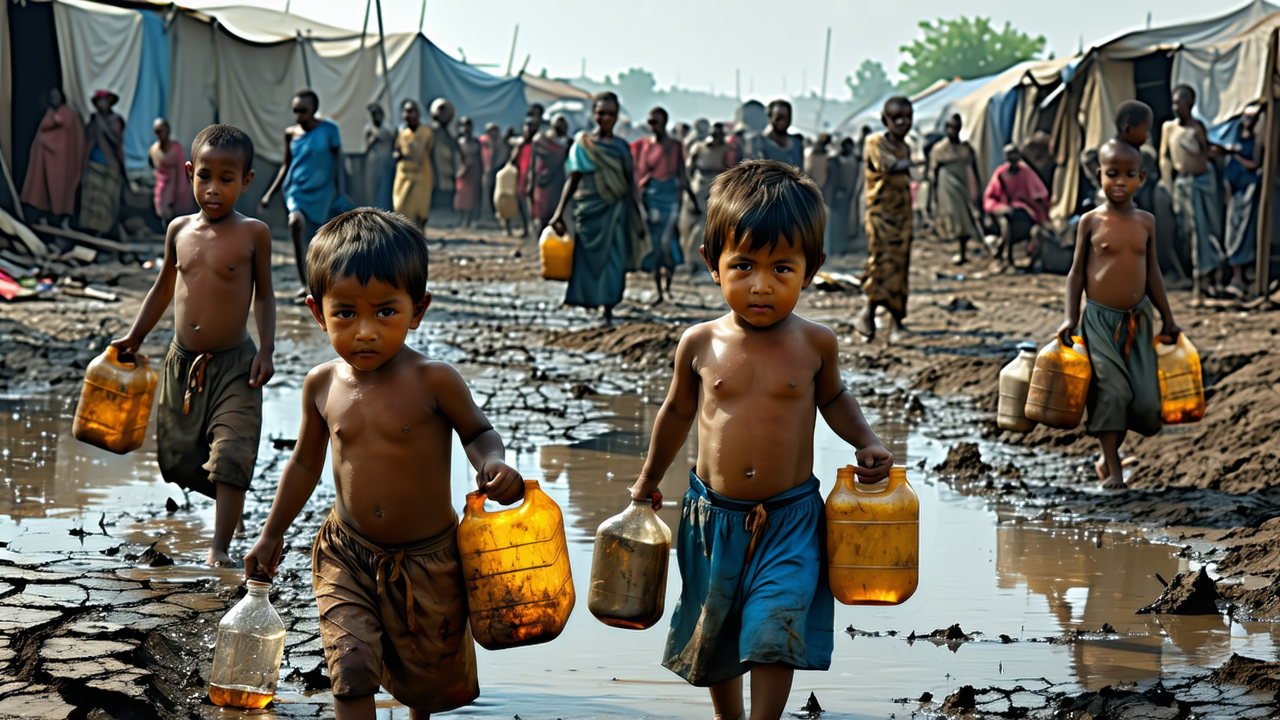Gaza Faces Dire Water Crisis as Polluted Aquifers and Damaged Pipelines Leave Millions in Desperate Struggle for Clean Water
Gaza Faces Dire Water Crisis as Polluted Aquifers and Damaged Pipelines Leave Millions in Desperate Struggle for Clean Water
In the shadow of an ongoing humanitarian catastrophe, the people of Gaza are grappling with a crisis that threatens their very survival: a severe water shortage. With access to clean water dwindling to a fraction of the minimum emergency requirement, residents are forced to endure long walks, waiting in line for hours, and carrying water in containers that can barely sustain them.
For the past 22 months, the war has left the region's infrastructure in ruins, including the once-reliable water supply from Israeli pipelines, which now lie dry. The few remaining sources of water come from brackish aquifers, heavily contaminated by sewage and chemicals seeping through the rubble, leading to a surge in diseases such as diarrhea and hepatitis.
Children Carry the Burden
Children, who should be playing and learning, are now the primary water carriers in their families. Moaz Mukhaimar, a 23-year-old university student before the war, now spends hours each day walking to water distribution points, hauling back brackish water for his family of 20. His mother, Umm Moaz, shares the same concern: “Who knows if tomorrow we will be able to fill up again?”
A Crisis of Catastrophic Proportions
According to the United Nations, the minimum emergency level of water consumption per person is 15 liters per day. In Gaza, the average is a mere 3 to 5 liters a day, with many people relying on the sea for washing due to the unavailability of clean water. Aid agencies report a 150% increase in waterborne diseases over the past three months, with children and the elderly being the most vulnerable.
International Aid and a Long Road Ahead
While a new pipeline funded by the United Arab Emirates is in the works, it is expected to take weeks to connect, offering only temporary relief. Meanwhile, aid organizations such as Oxfam and UNICEF stress that a ceasefire and unfettered access for aid agencies are essential to prevent further loss of life.
As the world watches the unfolding tragedy in Gaza, the call for action is growing louder. The people of Gaza are not just fighting for survival—they are fighting for dignity, for health, and for a future that is not dictated by the devastation of war.
